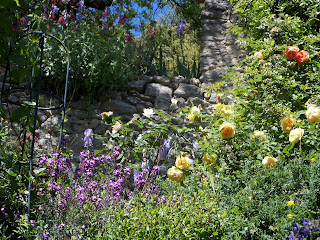May vs Corbyn:
The TV «Debate»
Clarity is all. It
wasn't quite a debate because the two weren't face to face but I
thought it an interesting exercise anyway. I thought neither did
particularly well but nor did they do particularly badly. Judging by
its reactions, the audience was quite well balanced in its
sympathies, even including a small but obvious UKIP claque.
The clearest point
that came through to me was when Paxman questioned May on her view of
the economic impact of Brexit, which May had stated before the
referendum as likely to be very damaging. May, very pointedly I
thought under close questioning from Paxman, made no attempt to
retract that opinion. She merely repeated that she was going to make
a success of Brexit (and that «strong and stable government» would
help, even if it doesn't affect the strength of the EU hand in
negotiations).
So, what could
success look like. Presumably it means minimising the economic
damage. What else can it mean? With trading agreements with the EU
and some 50+ other countries certain to be
generally less advantageous (see previous postings), the economic damage could be very
considerable indeed. Add the cost of Brexit and….……...So how
can damage be minimised? I can't see any way other than a quick
trade agreement with the EU, which must therefore be very much on
their terms. That was what impressed me most in the debate and I
don't think it came though clearly, perhaps because both contestants
were on the same side regarding Brexit. Nonetheless Brexit will go
ahead since both major political parties support what one commentator
described as «a unique national act of deliberate self-harm». The
decision of an electorate admittedly lied to, misinformed and widely
ignorant of the consequences must be «respected».
And clarity is
perhaps what is most lacking. The government has made several
efforts to avoid parliamentary scrutiny of negotiations and most of
the British press is unlikely to publish any bad news in that regard.
May insists she needs lack of clarity so as not to reveal her
negotiating hand but the EU has insisted that all negotiations must
be open and transparent; so the EU itself will be an invaluable
source of information over the coming years. Indeed, the EU has
stated that it believes the British electorate is still ignorant of
the implications of Brexit, as it most obviously is. Why would
people vote to be worse off?
Two things trouble
me most. One is the seemingly far too easy general acceptance of
essentially empty slogans. To the «making Britain great» and
«taking control» can now be added «strong and stable government»
and the comfortably optimistic escape clause that «nobody yet knows
how things will turn out». Nobody yet knows whether the world will
end tomorrow but one can examine the evidence, think (above all,
THINK) and come to some form of reasonably probable conclusion. I
hate that so few people seem to question what this populist garbage
and blind unsubstantiated hope really means. The other troubling
item is the aggressive stance of extreme right-wing, essentially
UKIP, supporters on every public platform. It smacks too much of
brown shirts. I can't remember when the neo-Nazi element in the
British public was as prominent as it is now.


